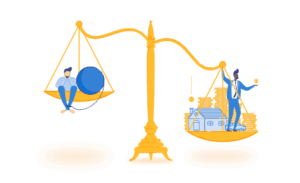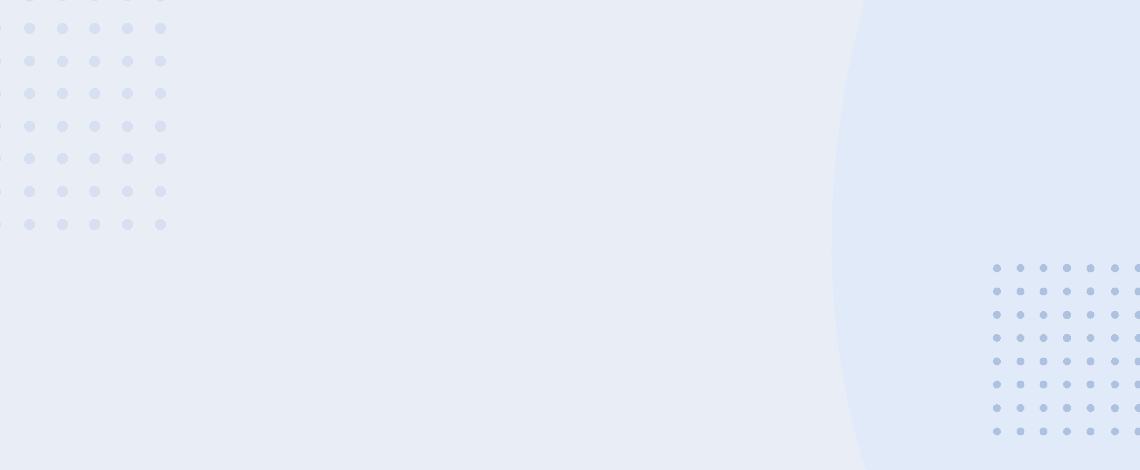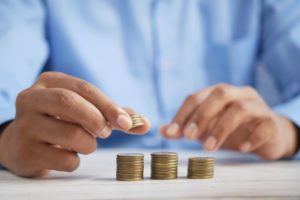Debt allows individuals to buy goods and services even if they do not have enough money available. While this is a great advantage that can help with emergency expenses, financial obligations eventually become due. You will have to make monthly payments on your debt or risk penalty fees and interest accumulation. This guide will explore some of the ways you can get out of debt, and some of the common types of debt people incur.
Understanding Debt
Debt gives you extra cash when you need it. Some people use credit cards to buy non-essential goods and services along with the essentials. Other people only use debt for emergency expenses. Each financial obligation has an interest rate, and a higher rate means you will have to pay more interest over time. The term is also a key factor that determines how much you pay if you take out installment loans. A lengthier loan has lower monthly payments, while a shorter loan allows you to get out of debt sooner.
Debt only becomes a problem if you let it accumulate and have a narrow budget. Building up too much debt can also hinder your ability to contribute to an investment portfolio and retire early.
How Much Debt is Too Much?
It’s relative for each person, but manageable debt is a monthly expense that you can comfortably afford within your budget. If you are nervous about how you will pay off a loan each month, you likely have too much debt. It’s also possible for someone to reach this scenario if they don’t keep a prudent eye on their income and expenses.
Types of Personal and Consumer Debt
These are some of the common types of personal and consumer debt people incur.
Secured Debt
Secured debt is a loan that has collateral. If the borrower does not repay the loan, the lender can take the collateral. For instance, many auto loans use the vehicle as collateral. The lender gets to own the vehicle if you default on the loan. Since secured debt has collateral, which increases the risk for the borrower, these loans usually have lower interest rates.
Unsecured Debt
Unsecured debt does not have any collateral. You don’t have to worry about losing a valuable asset if you fall behind on your loan payments. However, since risk shifts to the lender, you will likely have higher interest rates if you use unsecured debt.
Revolving Debt
Revolving debt is a type of debt that you only pay interest on when you borrow against an established credit limit. Lines of credit are a common example of revolving debt that often has variable interest rates. You can borrow against the revolving line of credit until the draw period concludes. Any remaining debt after the draw period gets converted into a loan.
Credit Card Debt
Credit cards are convenient and allow you to buy many goods and services. However, the interest rates on credit cards are notoriously high. You can end up with an APR ranging from 20% to 30%, and some credit card issuers push beyond 30% APR. Credit card debt is a good target for debt consolidation since most loans will have lower interest rates than your credit card debt.
Mortgage
A mortgage is a popular financial product for people who want to become homeowners. Mortgages make properties more accessible but also result in a monthly payment that sticks around for 15-30 years. You can pay off your mortgage faster if you have available funds. Housing is the largest expense for most people, whether you have a mortgage or rent a unit.
Student Loan Debt
Many students incur debt to pay exorbitant college tuition costs. These loans have monthly payment plans that make the debt more manageable. Some people get stuck with these loans for decades, but a quick commitment to paying it off before you start a family can minimize the financial burden. The government also has several programs that can alleviate the pain of student loan debt.
Bonds and Personal Loans
Bonds and personal loans offer instant principal but put you into monthly payment plans. While bonds have interest-only payments with the principal due at maturity, personal loans have fixed monthly payments that include the principal and interest,
The Effects and Legal Implications of Debt
Debt is a financial obligation that you must pay back to avoid any legal ramifications. If you avoid debt, you are still responsible for it, and interest will grow over time. A lender can eventually give your loan to a debt collector who calls you several times per day requesting repayment. Unpaid debt can eventually result in a lawsuit, resulting in you appearing in court and paying the debt with your remaining assets.
The Importance of Managing Debt
Managing debt makes it easier to achieve long-term financial goals and afford the necessities. Monthly debt payments get in the way of money that can be used for necessities. Keeping debt in control will reduce your financial stress and can potentially lead to an early retirement. Effective debt management gives you more control over money, and more money allows for more choices.
Ways to Get Out of Debt
It’s possible to get out of debt with the right plan. These are some of the strategies you can consider.
Debt Relief and Settlement Services
Debt relief and settlement services make your existing obligations more manageable. Debt relief allows you to enter a more friendly monthly payment plan to jumpstart your debt payments. Many creditors will work on debt relief because they don’t want to be left on the hook. Debt settlement occurs when a borrower agrees to provide an immediate payment that is less than the loan’s value. Debt settlement and relief are usually reserved for people who have fallen behind on their debt and need help with getting out.
Debt Consolidation Loans
Debt consolidation takes place when a borrower takes out a large loan and uses the proceeds to cover the balances of smaller loans. You can use debt consolidation to secure a lower interest rate on your debt (especially credit card debt) and reduce your monthly payments.
Debt Management Plans and Programs
Debt Management Plans and Programs make the monthly payments more manageable. You can come up with a plan to make extra money through a side hustle and trim your expenses. Some programs help you out with managing your debt and offer great advice. You can also review educational resources online and take a deeper look into your recent bank account and credit card statements.
Credit Counseling
A good credit counselor can offer guidance on how to repay your debt and improve your credit score. These professionals work with many clients and tailor their advice to your personal situation. Some credit counselors offer a free consultation session that gives you a better understanding of what you can do.
Bankruptcy
Bankruptcy is not the best way to avoid debt since it will appear on your credit report for 7-10 years. However, it may be the only option for some people. Bankruptcies help people reorganize their finances. A Chapter 11 bankruptcy allows you to keep your assets, but you will have to pay back your creditors. Chapter 7 bankruptcies are more suited for people who need a fresh start and are willing to walk away from their assets.
Should You Get Professional Help to Get Out of Debt
Receiving professional help can get you out of debt sooner. Professionals can help you identify opportunities to lower your monthly debt payments and stay on top of your finances. They have many years of experience and can help people who feel overwhelmed about their debt.
However, you should also work proactively on ways to grow your income through new skills and side hustles. It is also important to consider how much it costs to get professional help. Some companies can help you get out of debt sooner and are worth the price tag. This distinction is more apparent for bankruptcy, debt settlement, and debt relief. Some people can use the money to trim their current balances and do their own research.
Each person is different. What works for one person may not work for another. Professionals can act as mentors and make you feel more confident along the journey. However, they aren’t for everyone.
Conclusion: Managing and Getting Out of Debt
Staying on top of your debt can minimize the likelihood of it getting out of control. Paying off credit card debt at the end of each month and never spending more than you can afford are great starting points. If debt gets a bit out of hand, consumers can use several strategies to rein in debt. Consolidation loans, settlement, debt relief, and other tactics make it easier for people to reclaim their finances.
Debt is a great resource that makes it easier for people to buy goods and services. Many people rely on debt to buy homes and achieve important milestones. Debt can be good, but monitoring your income and expenses can make it manageable. Trimming your expenses will help, but the best opportunities emerge when consumers focus on skills and side hustles that translate into higher income.









